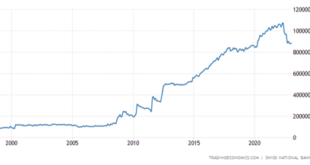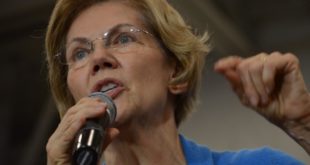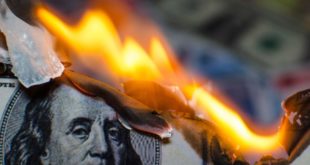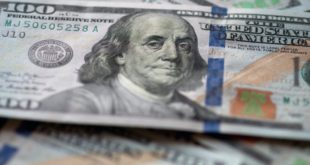Credit Suisse, one of the fifty largest banks in the world, has joined the long list of Western banks over the past two decades that have been rescued from the brink of failure and subsequently acquired by a larger financial institution. After comments from the chairman of the Saudi National Bank triggered the evaporation of almost a third of the megabank’s market capitalization, the Swiss National Bank (SNB) announced the creation of a new facility to preemptively...
Read More »Submission Guidelines for the Mises Wire
The Mises Wire depends on unaffiliated contributors for a significant proportion of its content. We welcome submissions from everyone, regardless of educational achievements and other credentials, so please send us your essays! We’re looking for short articles that approach real-world economic issues from an Austro-libertarian perspective (read: not just theory). We also accept history and sociology pieces that make use of Austrian or libertarian ideas. Radicalism is...
Read More »Does Cost Cutting Undermine Economic Growth?
Keynesian economists claim that cutting costs in a business slowdown is counterproductive. As usual, the Keynesians have it backward. Original Article: "Does Cost Cutting Undermine Economic Growth?" This Audio Mises Wire is generously sponsored by Christopher Condon. [embedded content] Tags: Featured,newsletter
Read More »The Pentagon’s Budget from Hell
On March 13th, the Pentagon rolled out its proposed budget for Fiscal Year 2024. The results were—or at least should have been—stunning, even by the standards of a department that’s used to getting what it wants when it wants it. The new Pentagon budget would come in at $842 billion. That’s the highest level requested since World War II, except for the peak moment of the Afghan and Iraq wars, when the United States had nearly 200,000 troops deployed in those two...
Read More »Elizabeth Warren’s Contradictory Demands for Easy Money and Strict Financial Regulation
As the financial ripples following the recent collapse of Silicon Valley Bank (SVB) continue to run through the financial sector, a predictable voice has weighed in on the affair, and, as always, giving bad advice. Elizabeth Warren, never one to skip a chance to publicly gnaw on a financial carcass, writes in the New York Times that the entire problem is lack of government regulation. Of course. The US senator from Massachusetts has spent most of her Washington...
Read More »The Last Lie Government Will Ever Tell
Western governments seem to relish a clash with Russia, despite the specter of nuclear war. If so, it will be a conflict built on government lies. Original Article: "The Last Lie Government Will Ever Tell" This Audio Mises Wire is generously sponsored by Christopher Condon. [embedded content] Tags: Featured,newsletter
Read More »Understanding the Difference between Praxeology and Psychology
It has been proposed that praxeology has potential not only as the foundation for growing the Austrian school of economics but other sciences as well. The utility of Austrian economics is immense, and similar achievements in other domains would be welcome. However, it seems like a difficult task, as demonstrated by a recent effort to expand praxeology to psychology. The present article discusses the scope and power of praxeology and the conditions of psychological...
Read More »Democracy Created Canada’s Lethal Healthcare System
Canadian politicians tout their healthcare system as morally superior to private medicine. There is nothing moral about relegating thousands of people to death each year for lack of medical care. Original Article: "Democracy Created Canada’s Lethal Healthcare System" This Audio Mises Wire is generously sponsored by Christopher Condon. [embedded content]...
Read More »Governments Can’t Blame Inflation on Energy and Putin Anymore
At the end of February 2023, the price of oil (WTI and Brent), Henry Hub and ICE natural gas, aluminum, copper, steel, corn, wheat, and the Baltic Dry Index are below the February 2022 levels. The Supply Chain Index and the global supply-demand balance, published by Morgan Stanley, have declined to September 2022 levels. However, the latest inflation readings are hugely concerning. Considering the previously mentioned prices of commodities and freight, if price...
Read More »Is It Real Money or Just Artifice?
In his 1884 article “Mind as a Social Factor,” Lester F. Ward attacked the laissez-faire doctrine in an “inversion of values” that would have made Friedrich Nietzsche blush. “But how shall we distinguish,” Ward asked, this human, or anthropic, method from the method of nature? Simply by reversing all the definitions. Art is the antithesis of nature. If we call one the natural method we must call the other the artificial method. If nature’s process is rightly...
Read More » Swiss Economicblogs.org
Swiss Economicblogs.org







